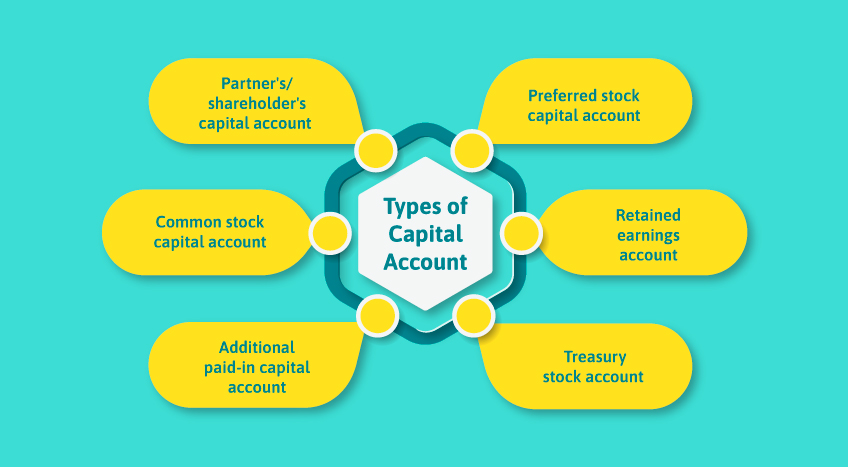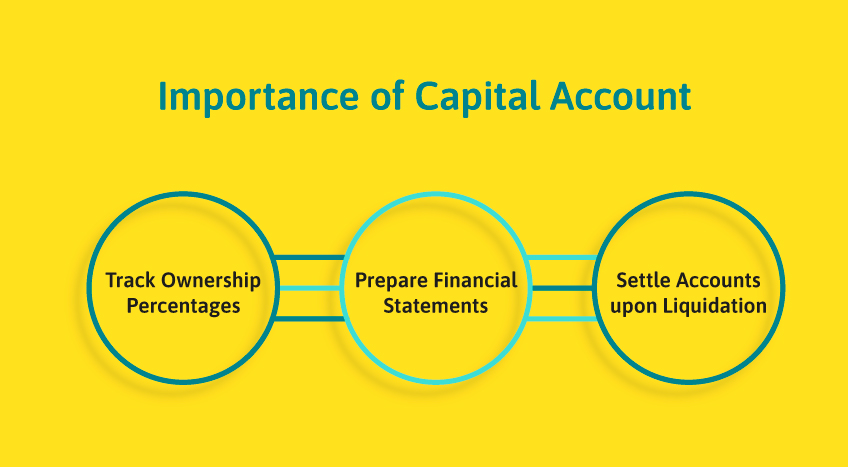Every entrepreneur's and business owner's life revolves around capital, profits, and losses. However, capital is an important financial resource, which is either in the form of money or assets, that propels the business to development and success. Capital holds vital significance in accounting and business as it is also fundamental to financial accounts, transactions, and choices. Still, some entrepreneurs are confused about what capital is in accounting and why it is so important.
The importance of capital goes beyond its monetary worth and stands as the bedrock upon which enterprises grow and prosper. A company's fiscal journey is shaped by capital, which is essential from the beginning stages of entrepreneurship to the mature stages of financial stability. Today, in this in-depth guide to financial sustainability, we will explore what is capital in accounting and capital accounts.
|
What Do Accountants/Businesses Look for in an Accounting Software |
Capital in accounting - a key component for business success and development
Capital is a crucial component of business and accounting that helps you as a business owner in every facet of your company. In business accounting, capital refers to a company's equity, cash, or net financial assets. From buying goods to paying salaries, it allows you to conduct and cover the expenses of day-to-day operations. Capital financial assets also include receivable accounts, property, residences, or machinery.
Capital is often associated with cash flow in the accounting sense, as it measures a company's worth. Capital shows the cash available to shareholders if the business's assets were liquidated and all debts and liabilities were paid off. As a company grows over time, its capital account will expand in proportion. If a company goes bankrupt, this capital account will reveal how much each business partner must get after paying off debts and liabilities.
Capital account's significance for businesses
A capital account is an accounting record that keeps track of how much capital each owner or shareholder of a company organization contributes over time. It displays the owner's initial capital investment, any further investments or capital contributions, and the owner's portion of retained earnings. The capital account is used to identify each owner's proportionate part of the company's equity. It also keeps track of distributions or dividends given to shareholders, diminishing the capital account balance. Maintaining up-to-date and accurate capital accounting enables a firm to clearly demonstrate each owner's claim on the company's net assets.
Types of capital account and their importance for businesses
A solitary proprietor owns the whole company. The company balance statement displays the proprietor's capital account as the owner's. Capital accounts are held by firm partners and limited liability partnership (LLP) companies. Several types of capital accounts are used in accounting to track firm owners' equity. The most prevalent types of capital account are as follows:

Partner's/shareholder's capital account
This capital account keeps track of every partner's or shareholder's initial investment and ownership portion in a partnership or company. It displays donations, earnings/losses, and withdrawals over time.
Common stock capital account
For businesses, the common stock capital account is a general ledger account that states the par value of the shares owned by a corporation's common stock. It rises when new shares are issued and falls when shares are repurchased. When these shares are sold for more than their par value, the difference is recorded separately in an additional paid-in capital account.
Additional paid-in capital account
Account keeps track of the excess paid by investors above the par value of shares when they are issued. It frequently occurs when an investor purchases freshly issued shares directly from a firm during the IPO stage. For instance, if a $1 par stock is sold for $5 per share, the $4 premium is deducted here.
Preferred stock capital account
Preferred shares have a fixed dividend rate but no voting rights. It works in the same way as a typical stock account. It is a type of capital stock account that records the par value of all preferred stock issued by a corporation. A preferred stock capital account is a hybrid of a stock and a bond that appeals to investors who want a consistent dividend payment and capital protection from bankruptcy.
Retained earnings account
This capital account is a component of equity that represents total net earnings reinvested in the firm from its beginning. It rises when net profits rise and falls as losses or dividend payments fall. Retained earnings are the cumulative percentage of a company's profits that are not given to shareholders as dividends but are instead kept for reinvestment back into the company.
Treasury stock account
The acquisition of a company's previously issued and outstanding common stock is recorded in the Treasury Stock Account, lowering total shares. It shows monies spent rather than capital invested.
How does a business owner’s capital account work?
A capital account monitors each partner's or shareholder's ownership interest in a corporate organization over time. The capital account is credited (raised) for each business owner's initial capital contribution when the firm is founded. It might take the shape of cash, property, equipment, or other assets.
The capital account is changed over the firm's life to allocate ownership of earnings and losses. The owner's share of net income or loss is credited or debited to their capital account after each accounting period. Retained profits also contribute to the capital account's growth over time. When the owner withdraws cash from the firm, the capital account is debited (decreased). It might involve regular profit distributions or a complete withdrawal after quitting the firm. The capital account guarantees precise monitoring of each owner's equity percentage during the firm's life by recording these owner investments, profit allocations, and withdrawals.
Importance of capital account for understanding a business’s financial status

From net worth to balance sheet, the capital account in accounting holds the utmost significance for several reasons:
Track ownership percentages
Capital accounts directly describe each owner's proportional ownership position in the company. It is accomplished by taking into account the cumulative contributions and profit allocations they have made over time. It is of the utmost importance when making decisions that require consent from the owner.
Prepare financial statements
The amounts available in the capital accounts are displayed on the balance sheet to illustrate the claims that equity investors have. Accurate capital accounting ensures that the company's financial situation is accurately reflected in the financial statements.
Settle accounts upon liquidation
Capital accounts assist in the account settlement process if the business is dissolved by determining how much each owner owes when assets are sold and obligations are paid off. The balances illustrate the appropriate distribution of the revenues on top of that.
Final takeaways: TallyPrime for automatic accounting and invoicing
From operation to expansion, every business process revolves around capital that enables businesses to meet their everyday expenditures. It is an indispensable part of a business that helps identify the flow of assets and availability. Besides all these, a capital account helps encourage strategic financial planning and decisions.
TallyPrime is a popular accounting software that helps handle the finances of small and medium-sized enterprises in India. TallyPrime lets users quickly construct customized financial reports such as balance sheets, income, and cash flow statements. TallyPrime also enables businesses to acquire insights from automated reporting while saving time on manual accounting tasks.











